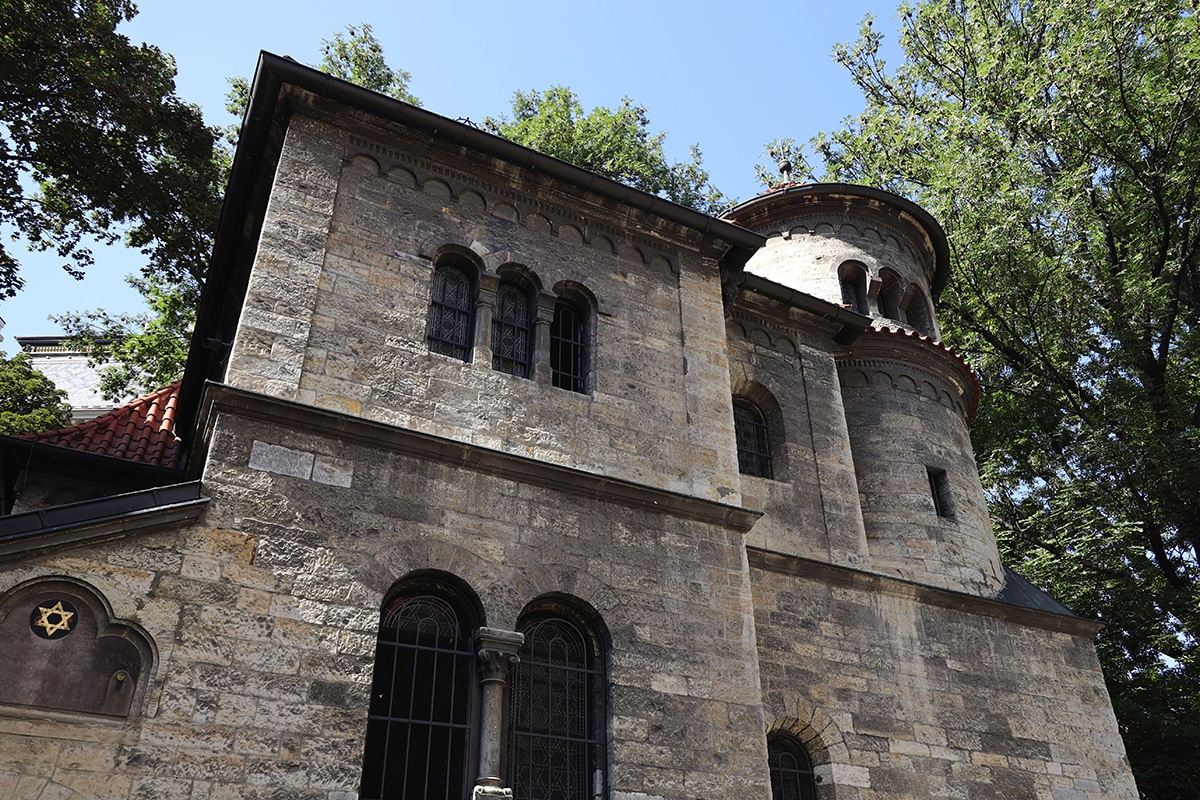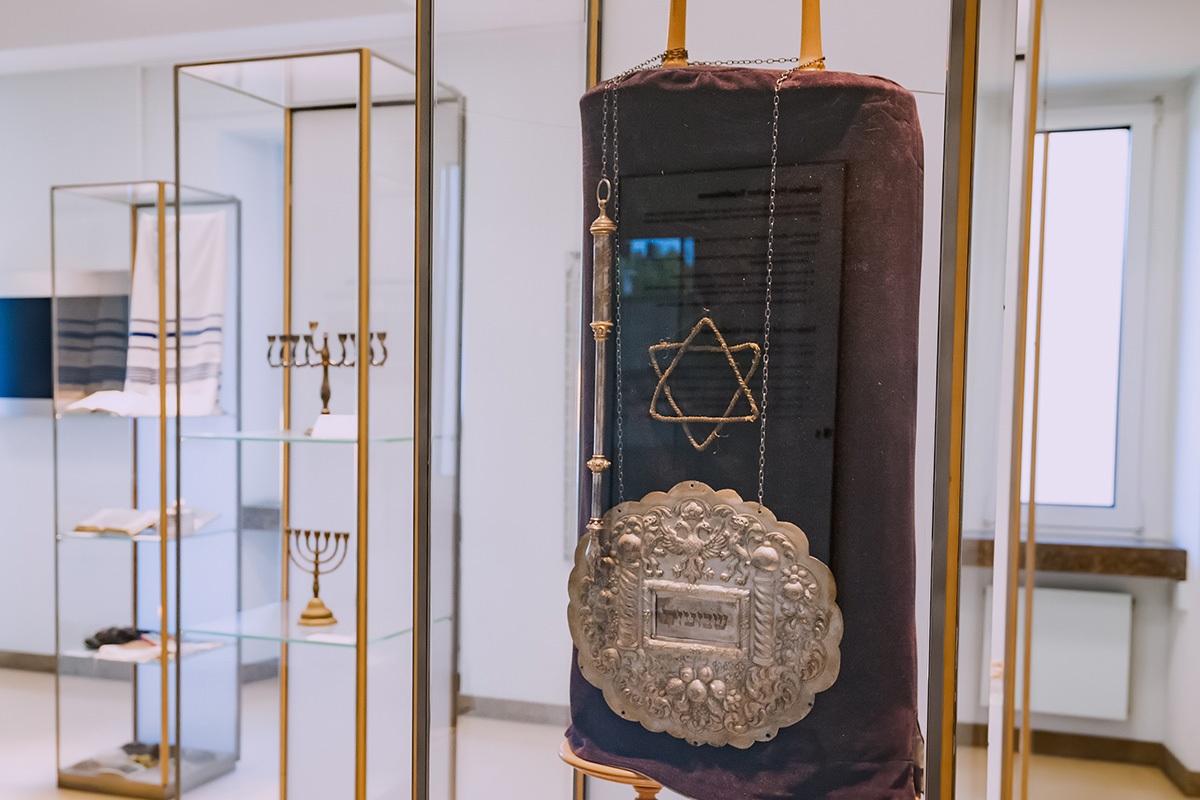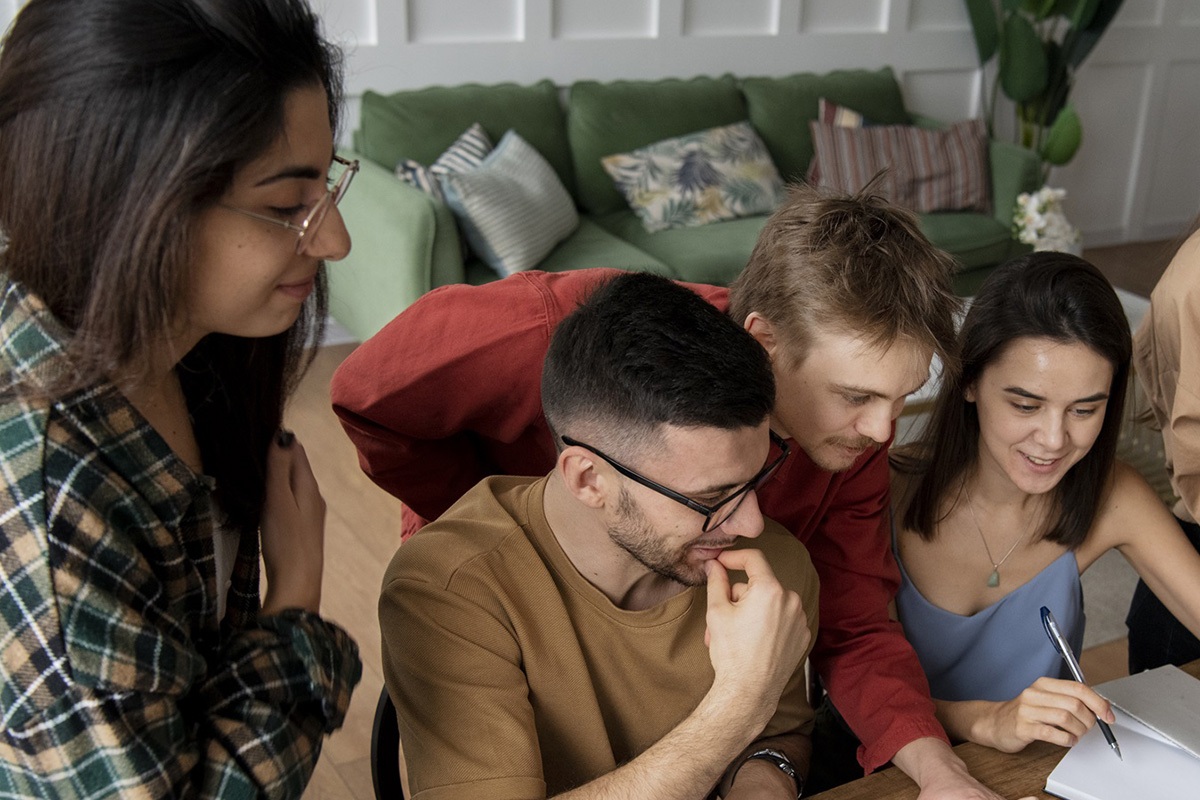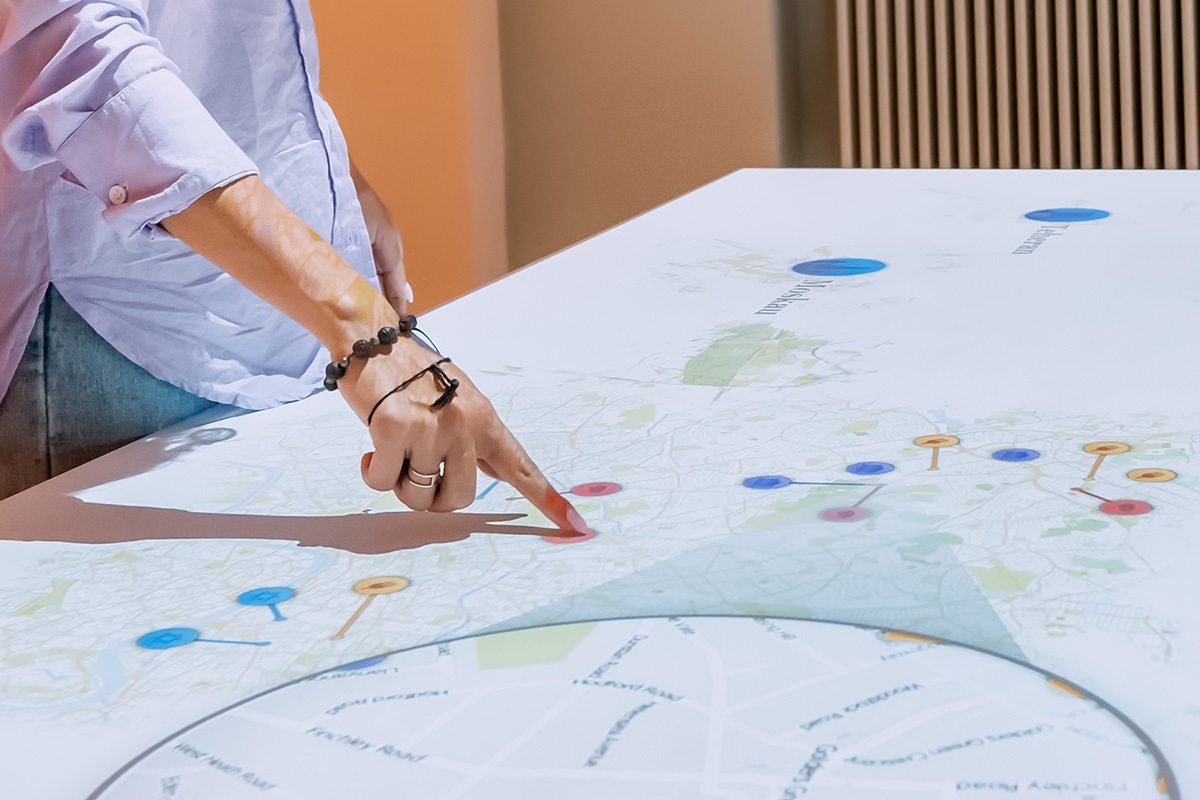MY HOMETOWN
A new international education programme from Collingwood Learning
My Hometown
A new international education programme from Collingwood Learning
MY HOMETOWN
A new international education programme from Collingwood Learning
The UK Chairmanship of the International Holocaust Remembrance Alliance (IHRA), supported by Collingwood Learning, and in partnership with UCL Centre for Holocaust Education, are delighted to introduce My Hometown, an international Holocaust education project.
We chatted with Chris Simes, Collingwood’s’ Director who shared his thoughts about the project and lessons we all must learn from history to have a better future.
The UK Chairmanship of the International Holocaust Remembrance Alliance (IHRA), supported by Collingwood Learning, and in partnership with UCL Centre for Holocaust Education, are delighted to introduce My Hometown, an international Holocaust education project.
We chatted with Chris Simes, Collingwood’s’ Director, who shared his thoughts about the project and lessons we all must learn from the history, to have a better future.
The UK Chairmanship of the International Holocaust Remembrance Alliance (IHRA), supported by Collingwood Learning, and in partnership with UCL Centre for Holocaust Education, are delighted to introduce My Hometown, an international Holocaust education project.
We chatted with Chris Simes, Collingwood’s’ Director, who shared his thoughts about the project and lessons we all must learn from the history, to have a better future.
What inspired Collingwood Learning to collaborate with the International Holocaust Remembrance Alliance on My Hometown?
In recent years we’ve had the privilege to work on Inseparable, a project educating young people on the Bosnian War and the Srebrenica Genocide, which helped us as a team realise just how important it is for young people to learn about humankind’s capacity to commit terrible crimes. Partnering with the International Holocaust Remembrance Alliance is a enabling us to reach young people around the world who will benefit from understanding the events of that tragic time, its legacy today, and crucially, how they can play a role in ensuring it never happens again.


What is My Hometown?
My Hometown makes Holocaust Education relevant to student’s own lives by helping them research and explore their own home town links to the Holocaust, whether that be through a direct role in events, or by receiving survivors of that time and exploring their community legacy today. After the research piece, we are supporting school groups to present their learning to the wider school or community in unique and creative ways. We will also be giving participating schools a global platform to celebrate and share their projects to inspire new approaches to teaching and remembrance of the Holocaust.
What inspired Collingwood Learning to collaborate with the International Holocaust Remembrance Alliance on My Hometown?
In recent years we’ve had the privilege to work on Inseparable, which helped us as a team realise just how important it is for young people to learn about humankind’s capacity to commit terrible crimes. Partnering with the International Holocaust Remembrance Alliance is a enabling us to reach young people around the world who will benefit from understanding the events of that tragic time, its legacy today, and crucially, how they can play a role in ensuring it never happens again.

What is My Hometown?
My Hometown makes Holocaust Education relevant to student’s own lives by helping them research and explore their own home town links to the Holocaust, whether that be through a direct role in events, or by receiving survivors of that time and exploring their community legacy today. After the research piece, we are supporting school groups to present their learning to the wider school or community in unique and creative ways. We will also be giving participating schools a global platform to celebrate and share their projects to inspire new approaches to teaching and remembrance of the Holocaust.

What inspired Collingwood Learning to collaborate with the International Holocaust Remembrance Alliance on My Hometown?
In recent years we’ve had the privilege to work on Inseparable, a project educating young people on the Bosnian War and the Srebrenica Genocide, which helped us as a team realise just how important it is for young people to learn about humankind’s capacity to commit terrible crimes. Partnering with the International Holocaust Remembrance Alliance is a enabling us to reach young people around the world who will benefit from understanding the events of that tragic time, its legacy today, and crucially, how they can play a role in ensuring it never happens again.

What is My Hometown?
My Hometown makes Holocaust Education relevant to student’s own lives by helping them research and explore their own home town links to the Holocaust, whether that be through a direct role in events, or by receiving survivors of that time and exploring their community legacy today. After the research piece, we are supporting school groups to present their learning to the wider school or community in unique and creative ways. We will also be giving participating schools a global platform to celebrate and share their projects to inspire new approaches to teaching and remembrance of the Holocaust.

Education is key, it is a vital element of creating a more inclusive and safer society for all.
Education is key, it is a vital element of creating a more inclusive and safer society for all.
Education is key, it is a vital element of creating a more inclusive and safer society for all.
What have been the results so far?
At the time of writing, we are in the promotional phase, but I am thrilled that schools from around the world are signing up to participate with incredible ideas for their projects and how they intend to share that learning with their community and beyond. Projects include gaining testimonies from Holocaust survivors, exploring local landmarks and memorials, studying the journeys of Holocaust refugees, learning about local connections to atrocities or liberation, the displacement of communities, and more. Equally inspiring are the ways these stories will then be told by students, using film, 3D mapping, and other arts-based approaches. Schools are still joining the programme, and the deadline for project submissions is the 1st November.

What makes My Hometown special to you?
For me, it’s the idea of students connecting their Hometown with the events of the Holocaust, good or bad. This provides a way of accessing a complex and sometimes overwhelming subject in a manageable and relatable way. Also, I’m incredibly excited about the international dimension to the project. In coming months, we will be bringing students and teachers together to share their work with each other, fostering international connections and the sharing of teaching practice around Holocaust remembrance. These stories should have a place in every young person’s educational journey, and we hope we can play our part in making that happen.

History is not a passive reflection of the past but a dynamic force that shapes the future.
What have been the results so far?
At the time of writing, we are in the promotional phase, but I am thrilled that schools from around the world are signing up to participate with incredible ideas for their projects and how they intend to share that learning with their community and beyond. Projects include gaining testimonies from Holocaust survivors, exploring local landmarks and memorials, studying the journeys of Holocaust refugees, learning about local connections to atrocities or liberation, the displacement of communities, and more. Equally inspiring are the ways these stories will then be told by students, using film, 3D mapping, and other arts-based approaches. Schools are still joining the programme, and the deadline for project submissions is the 1st November.

“Eighty years have passed since the Roma Holocaust. Survivors and witnesses of these atrocities will soon fade into memory. It is more important than ever to remain committed to everlasting remembrance. We pledge to stand against injustice and to build a world rooted in respect, understanding, and equality. May the legacy of the Roma victims of the Holocaust inspire us to create a better, more inclusive future.”
Marija Pejčinović Burić, Secretary General of the Council of Europe.

What have been the results so far?
At the time of writing, we are in the promotional phase, but I am thrilled that schools from around the world are signing up to participate with incredible ideas for their projects and how they intend to share that learning with their community and beyond. Projects include gaining testimonies from Holocaust survivors, exploring local landmarks and memorials, studying the journeys of Holocaust refugees, learning about local connections to atrocities or liberation, the displacement of communities, and more. Equally inspiring are the ways these stories will then be told by students, using film, 3D mapping, and other arts-based approaches. Schools are still joining the programme, and the deadline for project submissions is the 1st November.

What makes My Hometown special to you?
For me, it’s the idea of students connecting their Hometown with the events of the Holocaust, good or bad. This provides a way of accessing a complex and sometimes overwhelming subject in a manageable and relatable way. Also, I’m incredibly excited about the international dimension to the project. In coming months, we will be bringing students and teachers together to share their work with each other, fostering international connections and the sharing of teaching practice around Holocaust remembrance. These stories should have a place in every young person’s educational journey, and we hope we can play our part in making that happen.
Educating young people and communities about the Holocaust is a vital element of creating a more inclusive and safer society for all. We invite all schools to take part in My Hometown, by creating your own project to discover stories that connect your students’ hometown with the Holocaust and its legacy.

What makes My Hometown special to you?
For me, it’s the idea of students connecting their Hometown with the events of the Holocaust, good or bad. This provides a way of accessing a complex and sometimes overwhelming subject in a manageable and relatable way. Also, I’m incredibly excited about the international dimension to the project. In coming months, we will be bringing students and teachers together to share their work with each other, fostering international connections and the sharing of teaching practice around Holocaust remembrance. These stories should have a place in every young person’s educational journey, and we hope we can play our part in making that happen.
History is not a passive reflection of the past but a dynamic force that shapes the future.
History is not a passive reflection of the past but a dynamic force that shapes the future.
“Eighty years have passed since the Roma Holocaust. Survivors and witnesses of these atrocities will soon fade into memory. It is more important than ever to remain committed to everlasting remembrance. We pledge to stand against injustice and to build a world rooted in respect, understanding, and equality. May the legacy of the Roma victims of the Holocaust inspire us to create a better, more inclusive future.”
Marija Pejčinović Burić, Secretary General of the Council of Europe.
Educating young people and communities about the Holocaust is a vital element of creating a more inclusive and safer society for all. We invite all schools to take part in My Hometown, by creating your own project to discover stories that connect your students’ hometown with the Holocaust and its legacy.
“Eighty years have passed since the Roma Holocaust. Survivors and witnesses of these atrocities will soon fade into memory. It is more important than ever to remain committed to everlasting remembrance. We pledge to stand against injustice and to build a world rooted in respect, understanding, and equality. May the legacy of the Roma victims of the Holocaust inspire us to create a better, more inclusive future.”
Marija Pejčinović Burić, Secretary General of the Council of Europe.
Educating young people and communities about the Holocaust is a vital element of creating a more inclusive and safer society for all. We invite all schools to take part in My Hometown, by creating your own project to discover stories that connect your students’ hometown with the Holocaust and its legacy.


Join Us